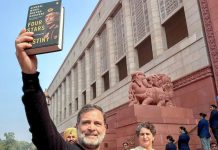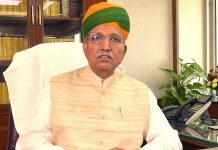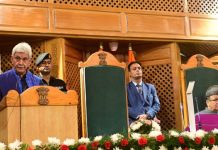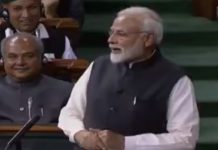The timing of Rashid’s release went against him. The narrative by the rival parties that he had been released to split the mandate in Kashmir caught on, making people suspect his bonafides. Also, Rashid failed to forcefully dispel the allegations levelled against him. A report by Riyaz Wani
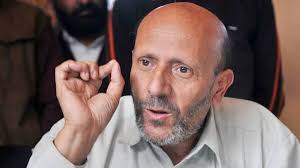
When the Awami Ittehad Party leader Engineer Rashid was released on September 12 to campaign in the Assembly election, it was as if a big rock had been hurled into the choppy waters of Kashmir politics. The ripples generated from the impact threatened to disrupt the course of the election in which the National Conference-Congress coalition and the BJP appeared to be in a driving seat.
Rashid’s combative press conference at Delhi Press Club and subsequently his rousing welcome in Kashmir helped him set a new rival narrative. He kept the tempo for a few days, but from there on the things started unraveling and by the end of the campaign, most of his credibility had petered out. His brother could barely win his seat from their native constituency of Langate.
Analyzing the outcome later, the AIP said it lost as it was up against everyone else. A statement said the AIP conducted a day-long meeting to introspect and analyze the election outcome. It concluded that “the limited time for campaigning and reaching out to the masses impacted their ability to connect with the electorate.”
“Despite the challenges, including Er Rashid’s delayed bail and numerous attempts at character assassination, it was evident that the political landscape had become a battle of NC, PDP, PC, Apni Party, Congress, and BJP versus Er Rashid and his AIP,” the statement read.” “This clearly reflects the growing influence and rising prominence of Er Rashid and the AIP.”
Rashid has always been a maverick and consequently his politics has been dramatic and unpredictable. With his entry, the election campaign became more interesting but it didn’t benefit him.
In the parliament election in May, Rashid, contesting as an underdog candidate from Baramulla parliamentary constituency won by a whopping 4,52,812 votes – two-thirds of the total – defeating political heavyweights such as former Jammu and Kashmir chief minister Omar Abdullah and Sajad Lone, a prominent leader, whose People’s Conference (PC) boasts of a strong footing in North Kashmir.
The key to Rashid’s success then was the groundswell that began in Langate and soon radiated out to the adjoining villages and towns including major urban centres such as Kupwara, Handwara, Baramulla and Sopore.
In the run-up to the abrogation of Article 370 in August 2019, Rashid, was arrested and charged by the National Investigation Agency under various sections of the Unlawful Activities (Prevention) Act (UAPA). The NIA has accused him of receiving money from Pakistan to fund separatist activities in Jammu and Kashmir. Rashid has denied the charges.
Controversies have been part of Rashid’s political career. He was beaten by the BJP leaders inside the legislative assembly after holding a beef party. However, his campaign in the past against the Indian Army for taking the local youth in his area for “bonded labour” earned him support among a certain section of voters in Kashmir.
Although a familiar face, he was never as big a player in Kashmir politics as he has become following his stunning landslide win in Lok Sabha election. His party’s performance in the Assembly election has again cut him to the size. However, the AIP’s abysmal performance now has left people wondering as to why he didn’t win more seats and why the 15 of the 18 Assembly constituencies in North Kashmir where he got a lead during parliament elections didn’t vote for him – that is, other than Langate.
The analysts believe that the timing of Rashid’s release went against him. The narrative by the rival parties that he had been released to to split the mandate in Kashmir caught on, making people suspect his bonafides. Reinforcing the allegations further, Rashid failed to forcefully dispel the allegations. This effectively cast him as a BJP agent, despite his protestations to the contrary. Hence the outcome.

